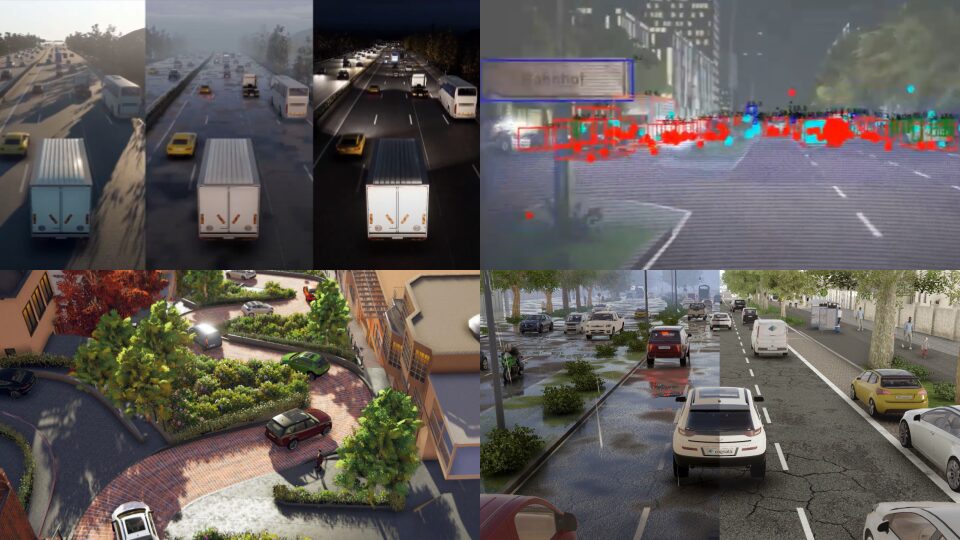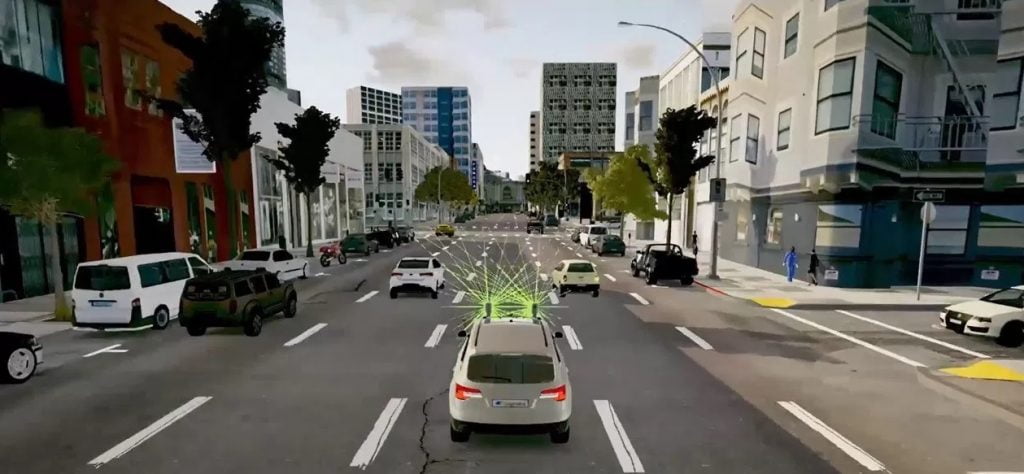Israeli simulation tech firm Cognata recently won two CES 2022 Innovation Awards last month, a rare feat at the annual trade show.
The CES Innovation Awards program, owned and produced by the Consumer Technology Association, is an annual competition honoring outstanding design and engineering in 27 consumer technology product categories.
While the Rehovot-based firm is largely known for its simulation platform developed for large-scale automotive simulation for Advanced Driver Assistance System (ADAS) and autonomous vehicle markets, Cognata was actually honored for the use of its tech in new verticals.

The company is in the midst of “expanding its horizons” and developing new ways to use its sophisticated simulation platform, outside of the ADAS and autonomous vehicle space. At CES next month, Cognata CEO and co-founder Danny Atsmon tells NoCamels the company will showcase these five new verticals, which include urban smart cities, off-road extreme terrains and agriculture, off-road construction & mining, real-data validation, and additional materials, like sensor fusion and thermal cameras.
“Cognata’s simulation platform is multi-layered and designed to incorporate all factors into its simulation engine, the company has said.
CES Innovation Awards
Cognata was honored in two innovation product categories. The first was Smart Cities, for the use of its unique technology in smart cities simulation. The second was in the Vehicle Intelligence and Transportation category for the way its ADAS technology helps to accelerate the global program for ADAS validation in order to meet global regulatory requirements.
The first award was for Cognata’s Smart Cities Digital Twin Product, a unique technology simulation in urban smart cities.
Cognata’s unique simulation platform offers realistic digital twins 3D environments with real-life traffic agents as moving, interactive objects. This simulation platform automatically creates digital twin terrain from imported HD maps with an auto-validation process as well as customized synthetic datasets on demand, with various scenarios and objects for fast and accurate AI perception training and validation.
“We have a new product there that enables a lot of designs aspects for new cities — finding hazards, parking management, traffic management, carbon emission,” Atsmon tells NoCamels, “Traffic management is a big deal. The cities of the future are becoming denser and the design aspects are very important. All the cities are going to have cameras. You can see it already in London, China, Hong Kong. Having those levels of sensors around the city lets you make dynamic adjustments are getting into restructuring — you can foresee the traffic management ahead of time and avoid safety hazards.”
Atsmon tells NoCamels there are already two pilot projects in two Israeli cities to test this digital twins product. The first is in a southern coastal city and one in the center. He says that the company is specifically focused on finding design hazards, things that may interrupt vehicles that are not necessarily considered when designing the city.
For example, in the coastal city, where there are roads built next to the sea, there is a glare from the sun hitting the water that could affect vehicles.
“In one of the designs we saw, a glare for the oncoming vehicles several times of the day. And there was a big incentive for pedestrians to jump into the street to get a bus. So people were injured,” he says, “The level of accidents in those areas are skyrocketing, and we have shown in the simulation that you can reduce the amount of accidents if a different lane is designed or a specific landscape design would be taken care of.”
Atsmon declined to name the cities but says the projects are ongoing.
Sign up for our free weekly newsletter
SubscribeThe other award was for Cognata’s “real-to-real” technology. The proprietary AI technology developed with Cognata transforms the super-high resolution data set to sensor inputs “as seen” by new sensors in new vehicle applications. In other words, it is now possible to re-use previously collected video data to test a camera in a new position or with a new optical path and record multiscopic images.
In June, German car parts maker ZF Group introduced ADAS.ai, a new scalable suite of data and AI-based services for ADAS Virtual Engineering and Digital Validation, powered by Cognata’s tech. ADAS.ai is designed to help OEMs (Original Equipment Manufacturers) accelerate the development of their systems for passenger and commercial vehicles.

“You need to do a lot of driving validation to make sure these vehicles are really doing what they are saying. You don’t want to have a system that should stop on a stop sign and in one in 1,000 cases, it doesn’t do it. It means that somebody will get killed,” Atsmon explains, “Our tech takes data from a collection as the vehicle drives millions of kilometers. There are small sensors attached, cameras, radars, LiDAR, and AI that was developed by Cognata.”
“So instead of going around and validating over and over and over again, we do it once,” Cognata Marketing Project Manager Nofar Assis adds.
The other verticals
As Cognata moved into other verticals earlier this year, the company announced a partnership with LeddarTech in June to integrate its simulation software with the Canada-based company’s sensior fusion and perception technology, LeddarVision. The goal was to further accelerate the testing and validation of self-driving agriculture vehicles.
This joint offering of a highly realistic simulation and testing platform for autonomous vehicle (AV) and advanced driver assistance systems (ADAS) combines the market’s leading autonomous vehicle perception training and sensor fusion along with simulation software on a cloud-powered platform, an announcement from both companies said.
Cognata’s simulation suite was also chosen by Arizona-based firm AgJunction to accelerate the off-road vehicle market, a field that was said to be valued at $14 billion in 2020 and anticipated to reach $18 billion by 2026. AgJunction is a global leader in advanced guidance and auto-steering solutions for precision agriculture applications.
Cognata’s AV off-road simulation is designed to test, train and validate perception and control challenges for terrains that do not offer a clear road definition and for paths that offer challenging conditions such as boulders, side slopes, and difficult traction.
Vehicles being used in agriculture are million-dollar vehicles, Atsmon explains. “So even doing experiments with those kinds of vehicles is very expensive, and being able to do it with a realistic simulation, the return on investment for somebody doing it is immediate.
“We want the vehicle to be able to recognize things in its path so that they will know how to face these challenges in the real world. It’s up to us to provide him with the real world experience before it actually goes live,” says Assis.
Cognata’s ongoing projects are being supported by some of the major players in the Israeli ecosystem including The Israeli Innovation Authority through the Avatar Consortium Project, The Israeli Smart Mobility Living Lab in collaboration with Survey of Israel (MAPI) for the modeling of digital twin environments in Israel.
Related posts

Editors’ & Readers’ Choice: 10 Favorite NoCamels Articles

Forward Facing: What Does The Future Hold For Israeli High-Tech?

Impact Innovation: Israeli Startups That Could Shape Our Future




Facebook comments